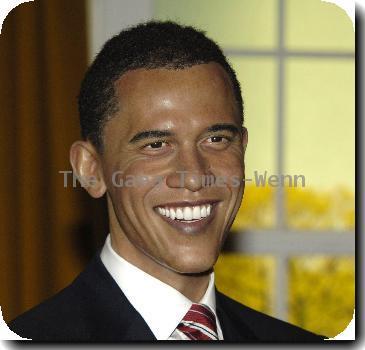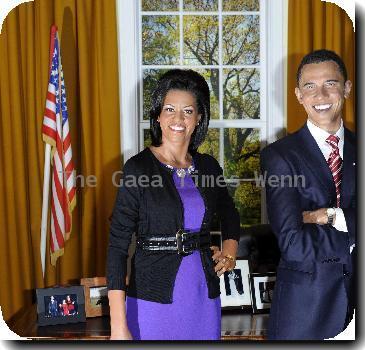CAPITAL CULTURE: Health care win in hand, Pelosi braces for GOP pushback in midterm elections
By Laurie Kellman, APWednesday, April 14, 2010
CAPITAL CULTURE: Pelosi braces for midterms
WASHINGTON — With the health care reform bill approved at last, House Speaker Nancy Pelosi had a quip for fellow lawmakers she’d relied on to help make it happen: “So what are we going to do now?”
It was an apt query for everyone in the room, but none more so than Pelosi herself. As Congress finally wrapped up the final piece of President Barack Obama’s health care overhaul, Pelosi turned 70, and a new chapter began for the nation’s first female speaker of the House.
The health care victory elevated Pelosi to the ranks of Washington’s most powerful House speakers. It also made her Exhibit A for Republicans intent on campaigning this fall against what they depict as the arrogance of unchecked Democratic power.
She’s let her troops know that between now and November she’s in full campaign mode: raising money, urging Democrats to do likewise and being the prime saleswoman for the health care overhaul.
Pelosi’s power is at its peak. It’s likely to fade somewhat after the midterm elections, in which the president’s party traditionally loses seats. If Democrats lose their majority and Pelosi the speaker’s seat, it’s not clear how much longer she’d serve.
Whatever the future, passage of the health care bill has shortened Pelosi’s to-do list, a multitasking mix of legislative, political, motherly and grandmotherly duties.
Her schedule on a few recent days: an overnight in New York with two grandchildren. An interview with The Associated Press in the morning. Flight to Florida the next day, to try to keep a special House election from going to the Republicans. Then, finally, a few days in the sun with friends nearby.
Asked what she wanted for her birthday, Pelosi, second in the line of presidential succession, surprised reporters by saying a pool table.
“For my grandchildren,” she explained.
Not that Pelosi is giving up her public portfolio: She’s intent on rallying fractious Democrats for the fall elections and returning as their speaker.
“My mother never contemplates failure,” said her daughter, Christine, a prosecutor and Democratic activist.
In 2007, when Pelosi took over as speaker, this daughter of a Baltimore mayor celebrated breaking “the marble ceiling” that had kept women out of the top ranks in Congress with four days of parties from her hometown’s Little Italy to the Italian Embassy.
Four years later, in the age of Obama, Pelosi and even Sonia Sotomayor, the first Hispanic Supreme Court justice, it’s no longer about breaking barriers at the top of American government. All eyes are on the midterms, which Republicans aim to turn into a referendum on Democratic power run amok and the health care reform bill that passed without a single Republican vote.
But what Republicans cast as arrogance, Pelosi holds out as the sort of decisiveness that President Lyndon Johnson demonstrated in winning passage of the Civil Rights Act of 1964.
“Nobody cares what the process is,” Pelosi says. “People care that the Civil Rights Bill was passed.”
Pelosi is a product of New Deal values instilled by her parents and other early role models. Catholic schooling and her father’s willingness to help constituents on the family doorstep taught her compassion. Campaigns plotted at the family’s kitchen table, strategy. President John F. Kennedy, leadership.
But the piece of advice most directly related to the health care battle came from her parents: Ideals are nice but of little use in public policy without pragmatism.
“It doesn’t matter how big your vision is or how smart your ideas are,” Pelosi summarizes now. “Make sure you have the votes.”
There are other lessons from Little Italy made obsolete by the partisan warfare in Washington.
Back home, Pelosi says, “the partisan divide was philosophical, but it was never personal. These people were our friends.”
“Little Nancy” D’Alesandro, the only daughter of Baltimore Mayor “Big Tommy” D’Alesandro Jr., worked the desk at her parents’ row house a few blocks from the Inner Harbor. People from the city streamed through asking for help: a bed in the city hospital. A job. Some food.
“It was almost as if we had office hours,” Pelosi said over a light lunch, drawing a parallel to the letters that lawmakers received during the health care debate outlining heartbreaking family tragedies that might have been avoided with insurance.
She attended Trinity College in Washington, where she met Paul Pelosi, a student at Georgetown University. They married in 1963 and soon moved to California, where Paul Pelosi made his fortune as owner of an investment and consulting firm. Five children followed, which made some of the 1960s pass in a blur, Pelosi says.
Cooking and carpool duty consumed the young family. But Pelosi also began working in Democratic Party politics and in the mid-1970s took a job in the office of Rep. Phil Burton. The House’s bombastic, chain-smoking liberal lion gave the polite and poised Pelosi advice that echoed her parents’.
“He told her, if she’s going to be in leadership, to know every member,” said Sen. Barbara Boxer, D-Calif., who met Pelosi when both served in the House.
Pelosi says she had a great relationship with Burton, but was better friends with his wife, Sala, who served in his seat after he died in 1983.
Around that time, Pelosi told reporters that she wouldn’t be running for office. Her children, she explained, weren’t fully grown.
But when Sala’s health failed and she asked Pelosi to run for the seat in 1987, Pelosi relented — and won, launching her political career in her late 40s.
Pelosi’s rise in the Democratic leadership was relatively fast and well-organized. She served on the ethics committee that investigated charges against Republican House Speaker Newt Gingrich, and in October 2001, finally won the job for which her parents and Burton had prepared her: the vote-counting minority whip.
She began racking up key victories that demonstrated how charm, persistence and in-depth knowledge of individual members of the Democratic caucus could be harnessed to create coalitions. In 2002, she rallied Democrats, then in the minority, against President George W. Bush’s bid to use force in Iraq, winning 126 Democratic votes and overwhelming the 81 Democrats who sided with Democratic leader Dick Gephardt of Missouri. The Republican majority still gave Bush enough votes to go forward.
Gephardt retired, and in 2002, Pelosi was overwhelmingly elected Democratic leader.
Long before the 2006 election, Pelosi was predicting Democrats would take control of the House. And when the elections that year delivered a Democratic majority, Pelosi was elevated to speaker.
Now, she’s the 70-year-old grandmother who looks like a million bucks and has much more than that.
She eschews girl-talk about her clothes and such. Yet everywhere she goes, people want to know where she gets her suits, who does her hair, how she stays so slim. She declines to discuss such matters, though Armani is said to be a favorite designer. And daughter Alexandra, a documentary producer, once found her mom sitting on a stationary bike — not pedaling, but eating ice cream and watching TV.
Pelosi carries with her the expectations that come with being a barrier-breaker in an influential place.
What then, would failure mean?
Last year, during her annual press conference with children, Pelosi offered a telling glimpse of what her own life might be like beyond Congress.
She lit up when a child asked what she does when her family gathers for two weeks each year.
“Most of the time I’m sitting on the floor with them playing the games and the rest, or reading. We dance a lot. We watch sports. We go to the games,” Pelosi said. “It’s the most fun of all. It’s the most fun of all.”
Tags: Baltimore, Barack Obama, Europe, Health Care Reform, House Elections, Italy, Maryland, Mid-term Elections, North America, Political Issues, Political Organizations, Political Parties, United States, Washington, Western Europe




